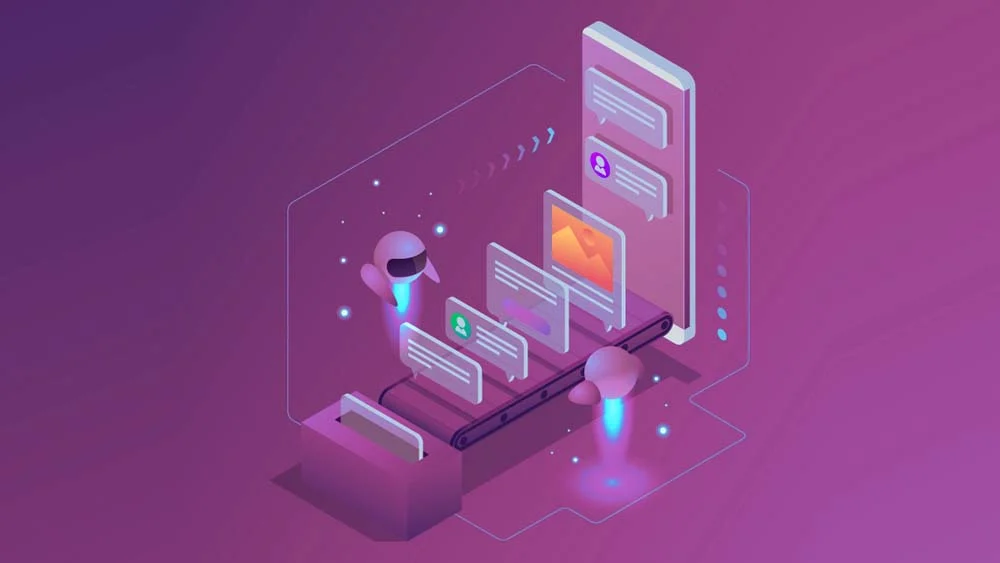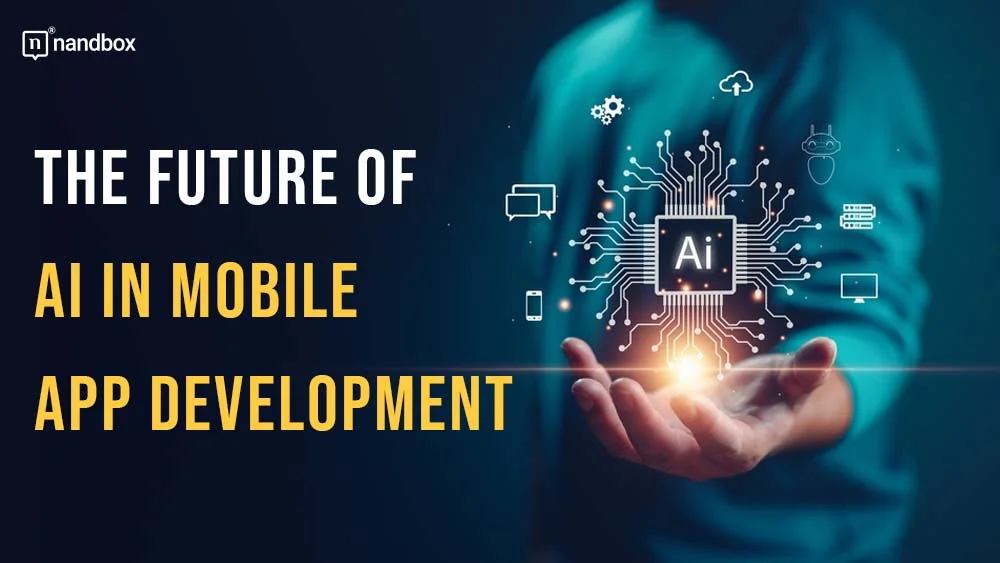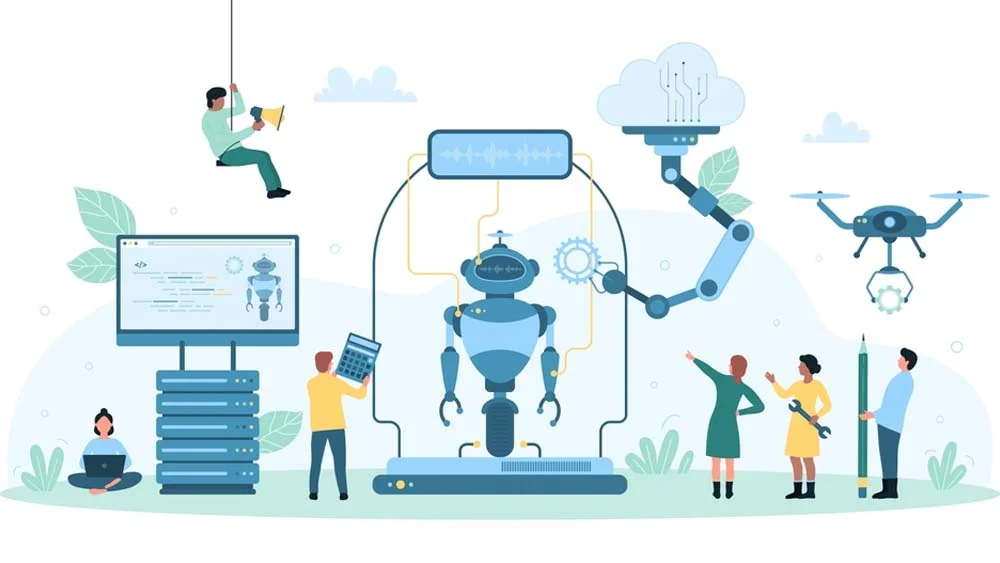How Will AI Transform Mobile App Development?
The integration of Artificial Intelligence (AI) into mobile app development is set to redefine how we interact with our devices. This integration is making them smarter, more intuitive, and incredibly efficient. As AI continues to evolve, its role in mobile apps promises significant changes in various industries. From health and finance to education and entertainment. Let’s explore what the future holds for AI in mobile app development and why it matters.
Understanding AI in Mobile Apps

AI refers to computer systems designed to mimic human intelligence by performing tasks such as learning, decision-making, and problem-solving. In mobile apps, AI can process large amounts of data, learn user preferences, and respond to users’ needs in real-time. This capability not only enhances user experience but also opens new avenues for developers to innovate.
Transformative Trends in Mobile App Development
- Personalization: AI algorithms can analyze user behavior to tailor app functionalities to individual preferences. For instance, streaming apps like Netflix use AI to recommend movies and shows. Ones that are based on viewing history. This helps with enhancing user satisfaction and engagement.
- Enhanced User Interfaces: AI is improving how users interact with apps. Voice assistants like Siri and Google Assistant use AI to understand and execute voice commands. This is something that makes device interaction more natural and intuitive.
- Predictive Analytics: AI can predict user behavior and provide proactive services. Apps in finance, for instance, use AI to alert users about several things. Like potential savings, upcoming bills, or unusual account activity. Which significantly improves financial management.
- Automated Customer Service: AI-driven chatbots in apps provide 24/7 customer support, handling inquiries and resolving issues without human intervention. This not only reduces operational costs but also improves customer experience.
- Health Monitoring: AI in health apps can monitor user health data in real-time. Moreover, it can provide insights and alert users and healthcare providers about potential health issues. That is, before they become severe.
- Adaptability: AI helps apps adapt to changing user expectations and evolving market trends, ensuring longevity and relevance in competitive markets.
- Scalability: AI systems can handle increasing volumes of data and interactions without a drop in performance. Also, they can make apps more scalable and capable of growing user bases.
Challenges and Opportunities
As AI technology continues to be integrated into mobile app development, it presents a dynamic landscape of challenges and opportunities. On the opportunity side, AI enables apps to deliver personalized experiences. Furthermore, AI enables apps to automate complex tasks and provide predictive insights. Ones that can transform user engagement and operational efficiency. These advancements allow businesses to offer enhanced customer service. Additionally, create more intuitive user interfaces and develop proactive solutions that anticipate user needs.
However, integrating AI into mobile apps also brings significant challenges. One major concern is privacy and security. As apps collect and process more personal data to feed AI algorithms, ensuring this data is handled securely and in compliance with data protection laws becomes critical. Additionally, the dependence on high-quality, diverse training data is paramount to preventing biases in AI behaviors. This requires robust data collection and annotation processes, which can be resource-intensive. There is also the risk of over-reliance on technology, where users and developers might overlook the importance of human oversight in decision-making processes.
Navigating these challenges requires a balanced approach, embracing the innovations AI can offer while implementing rigorous standards for data security, quality control, and ethical considerations. The success of AI integration in mobile apps will largely depend on the industry’s ability to manage these issues effectively, ensuring that the opportunities outweigh the potential drawbacks.
The Role of High-Quality Data
The success of AI in mobile apps heavily relies on the quality of the data. The one that developers use to train the AI models. High-quality, diverse, and accurately annotated data ensure that AI functions effectively and without bias. This is something that enhances the app’s ability to deliver personalized and accurate responses to user interactions. Services like TrainingData are crucial in this aspect, providing the essential training data needed to develop robust and reliable AI applications. These services help refine AI algorithms to perform with higher accuracy and adaptability. That is, by supplying a wide range of meticulously curated data. This is especially important as AI continues to integrate into various sectors, requiring tailored solutions that can only be achieved through comprehensive and well-annotated training datasets.
Envisioning the Future
The future of AI in mobile app development is set to redefine user interactions with smart devices. Here are some key facts and projections that illustrate the evolving role of AI:
Advanced Predictive Capabilities: According to Statista, the global AI software market is expected to grow exponentially, reaching approximately $126 billion by 2025, highlighting the expanding investment in AI capabilities that predict user behaviors and preferences more accurately.
Integration with Augmented Reality (AR): MarketsandMarkets reports that the AR market is projected to grow to $77.0 billion by 2025. AI is integral to this growth, enhancing AR applications in mobile apps with capabilities like image recognition and real-time information processing, which enrich user interactions in fields such as retail and gaming.
Autonomous Operations: Gartner predicts that by 2024, AI identification of emotions will influence more than half of the online advertisements you see. Mobile apps will increasingly use AI to autonomously adjust content, offers, and features in real-time based on the user’s emotional state or context, offering a more responsive and personalized experience.
IoT and AI Convergence: The convergence of AI and the Internet of Things (IoT) is set to significantly influence mobile app development. As the number of IoT devices is projected to reach 75 billion by 2025, according to IoT Analytics, the integration of AI is becoming increasingly crucial. AI enhances the functionality of mobile apps connected to IoT devices by efficiently processing and analyzing the vast amounts of data these devices generate. This enables smarter decision-making, improved energy management, and heightened security across smart home and urban infrastructure applications. By making everyday objects more interactive and responsive to user needs, AI is turning the vast network of IoT devices into an integrated, intelligent ecosystem that enhances daily life.
Healthcare Innovations: A report by PwC suggests that AI applications in healthcare can potentially lead to billions in cost savings annually by improving the efficiency of research and clinical trials and the personalization of patient care plans. In mobile app development, this translates to AI-powered apps that can monitor health conditions in real time, suggest lifestyle adjustments, and even alert healthcare providers about potential health risks before they escalate.
Educational Transformation: As per a study by the eLearning Industry, AI in educational technology is expected to increase by 47% by 2021. Mobile apps will harness AI to provide customized learning experiences, adapting in real-time to the learning speed and style of students, making education more accessible and effective for everyone.
These facts underscore the potential of AI to revolutionize mobile app development, leading to smarter, more intuitive applications that seamlessly integrate into daily life. As AI continues to evolve, its impact on mobile app functionality and the user experience will undoubtedly grow, offering exciting possibilities for the future.
Conclusion
The future of AI in mobile app development is bright, with technologies continually advancing to create more intelligent, personalized, and efficient applications. As AI becomes more embedded in our daily lives, mobile apps will not only become more interactive but also more indispensable. By embracing AI, developers and businesses can unlock new potential for innovation and provide users with experiences that are not just convenient but also transformative.






